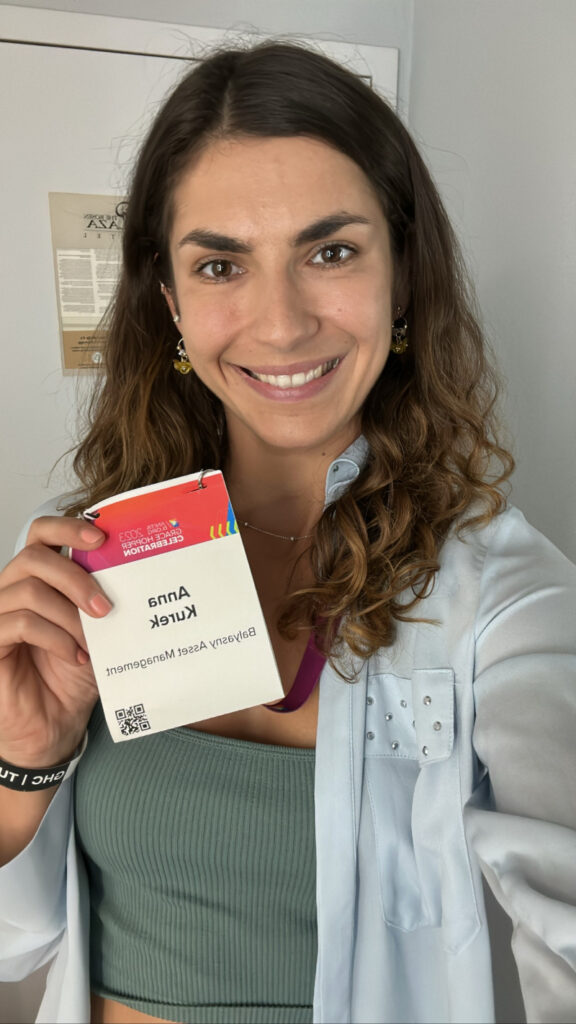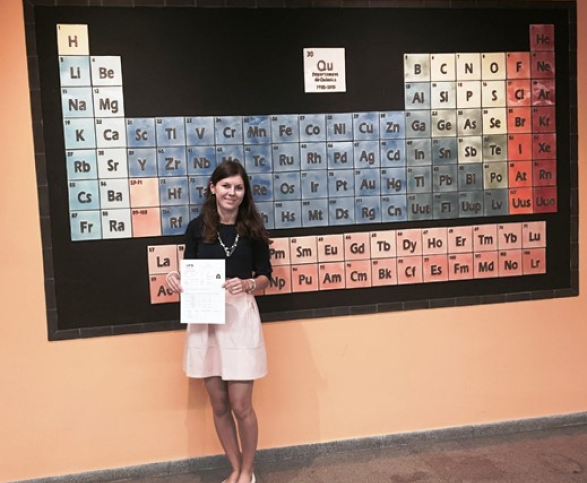
Anna Kurek, a graduate of Business Analytics at the renowned Imperial College London, talks about her studies abroad.
Why did you decide to study abroad?
I have always dreamed of studying abroad. I was intrigued by the different educational systems of other countries and read a lot of articles about prestigious foreign universities. Since childhood, I have been very interested in learning, especially in mathematics, physics, and computer science. In Poland, I undertook engineering studies at the AGH University of Science and Technology in Krakow and was reasonably satisfied with them. But when I learned about the scholarships offered by the Maspex Foundation and the help in applying to foreign universities, I knew right away that this would help me fulfill my dream of studying at the world’s best universities. A significant advantage of studying at top universities is that all students are very engaged in their studies, creating a highly motivating learning environment—students help each other a lot, and the lecturers offer a lot of support. In such conditions, absorbing knowledge becomes much easier and more enjoyable, and you can certainly learn a lot in a shorter time. Additionally, it is much easier to find a well-paid job after such studies, as almost all companies recognize these universities and know that students from these institutions are very bright and hardworking.
What were the biggest challenges you faced starting your studies?
The studies I decided to apply for and got into were Business Analytics at Imperial College London. I think the biggest challenges I encountered were related to the specific modules I chose during my studies, such as advanced machine learning and econometrics. The level of these courses was very high, and it was difficult to study all the required material in a short time. I think that in the future, to avoid such problems, it is always worth preparing a bit in advance for the courses and having some context for the more advanced topics taught in these modules.
What were the biggest advantages of studying abroad?
There are many advantages to studying abroad. First of all, you graduate from a very prestigious university that is recognized by employers, which provides significant benefits when it comes to finding a well-paid job straight out of university. Another advantage is that all students are passionate about the subject, so the learning environment is very encouraging. A very positive and interesting aspect is also the fact that students come from different countries, so you can learn a lot about various cultures around the world, make international friendships, and travel or visit the home countries of your new friends after graduation.
What was the application and admission process like for a foreign university?
The application process for studies in the UK starts very early, so you can apply even a year before the start of the academic year. An advanced English language certificate (IELTS, TOEFL, etc.) is required. Another important document is the “Personal Statement,” where you justify why you are the best candidate for these studies and how they will help you in your future career. Two references are also required—from previous lecturers or employers. A transcript of undergraduate/engineering studies and a minimum grade from these studies are also required—usually 4.5/5 (some courses accept slightly lower grades). For many courses, candidates are also invited to a phone interview where they are asked various technical and non-technical questions. The entire process takes several months.
What were the differences between the education system abroad and the one in Poland?
The most noticeable difference was student engagement. Most pay for tuition out of their own pockets, so they really dedicate themselves to their studies and want to get the most out of them. During studies, you receive a lot of support from doctoral students and professors. Depending on the university, the year is divided into 3-4 periods lasting several months (unlike the standard two semesters at Polish universities). Students are also very involved in extracurricular activities; almost everyone belongs to some kind of university club—whether scientific, sports, cultural, or simply hobby-based.
How did your career path develop? What are you doing today?
Immediately after graduation, I found a job in London at a finance company, where I worked for about four years. Currently, I have been working as a software engineer at a large financial institution in London for over a year. Graduating from Imperial College London was certainly key to securing both of these positions. Many things I learned in my studies I use in my job daily—among other things, data analysis and financial knowledge. Employers in the UK are eager to hire Imperial graduates because they know that students from this university are very committed.
Do you have any advice for someone who also wants to study abroad?
Apply! Studying with such engaged people who help each other is a wonderful experience. Also, exposure to many cultures from around the world is truly indescribable. It opens your eyes to the world. A crucial aspect of getting into your dream university is certainly a good grade point average from your undergraduate studies and a well-written Personal Statement, in which the Maspex Foundation staff provide a lot of help. It is also very important to present yourself as someone engaged in some hobby—either sports or scientific. Any additional projects or volunteer work also have a very positive impact on the application for studies abroad.


